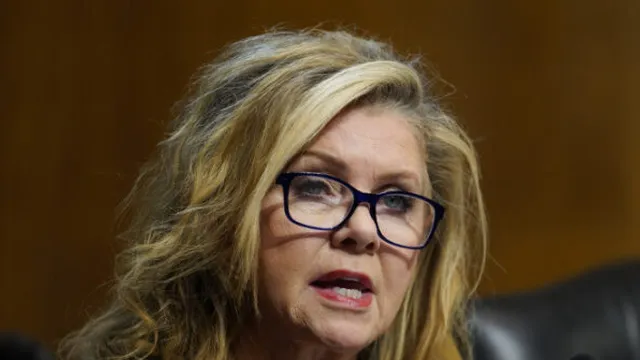
Marsha Blackburn: Union Members Choose Their Own Support
2024-09-28 00:00- Senator Marsha Blackburn held a town hall event with auto workers in Michigan, discussing the impact of economic issues on their jobs.
- She emphasized that union leaders do not have control over the political preferences of their members, citing a disconnect between union bosses and workers.
- The engagement reflects a potential shift in political alignment among union members, as they prioritize candidates who address their economic concerns.
Express your sentiment!
Insights
During a recent town hall event in Michigan, Senator Marsha Blackburn engaged with auto workers, emphasizing that union leaders do not dictate the political preferences of their members. She highlighted the disconnect between union bosses and the sentiments of the workers, particularly in light of the United Auto Workers (UAW) president's partisan stance at the Democratic National Convention. Blackburn noted that the pressing issues of inflation, immigration, and crime are significantly impacting the livelihoods of these workers, prompting them to reassess their political affiliations. One poignant story shared involved a single mother of five who, initially skeptical of Donald Trump, became a supporter after understanding his policies. Blackburn's remarks reflect a broader trend where workers are increasingly aligning their political views with their economic realities, indicating a shift in traditional voting patterns within unionized groups. This shift could have significant implications for future elections, as workers prioritize candidates who address their immediate concerns over party loyalty.
Contexts
In recent years, the impact of union leadership on the political preferences of their members has become increasingly evident. A 2013 study published in Social Forces highlights that union members are significantly more likely to engage in political activities compared to their non-union counterparts. With 72% of union members reporting that their organizations take stands on political issues, unions play a crucial role in mobilizing the working class and fostering civic engagement. However, the long-term decline of union membership, which fell from a peak of 34% of the workforce in 1955 to just 12.4% in 2008, raises concerns about the future of political participation among less educated demographics. Research indicates that public sector workers, who are often unionized, exhibit higher levels of civic-mindedness than their private sector peers. This phenomenon, known as public service motivation (PSM), suggests that individuals drawn to public sector work are more likely to engage in political activities. The study reveals that unionized public sector workers participate in marches, rallies, and protests at rates 1.7 times higher than private sector workers, underscoring the vital role unions play in amplifying political participation. The findings also show that union voters are integral to the Democratic coalition, with Biden performing better among union voters than previous Democratic candidates. This trend is particularly notable among working-class and college-educated voters, where union support translated into a 6 to 22 percentage point advantage for Biden. As the Democratic Party strategizes for future elections, recognizing the importance of unions in retaining voters across various demographics is essential. In conclusion, the relationship between union membership and political engagement is clear. Unions not only cultivate political participation among their members but also serve as a critical voice for the working class in the political arena. As the decline of unions continues, the implications for civic engagement and political representation could be profound.